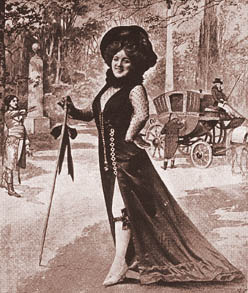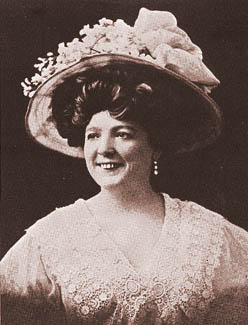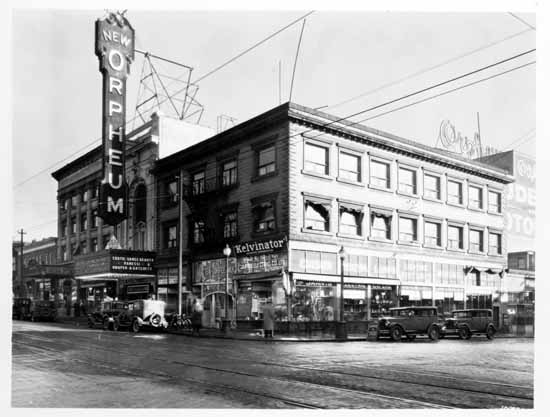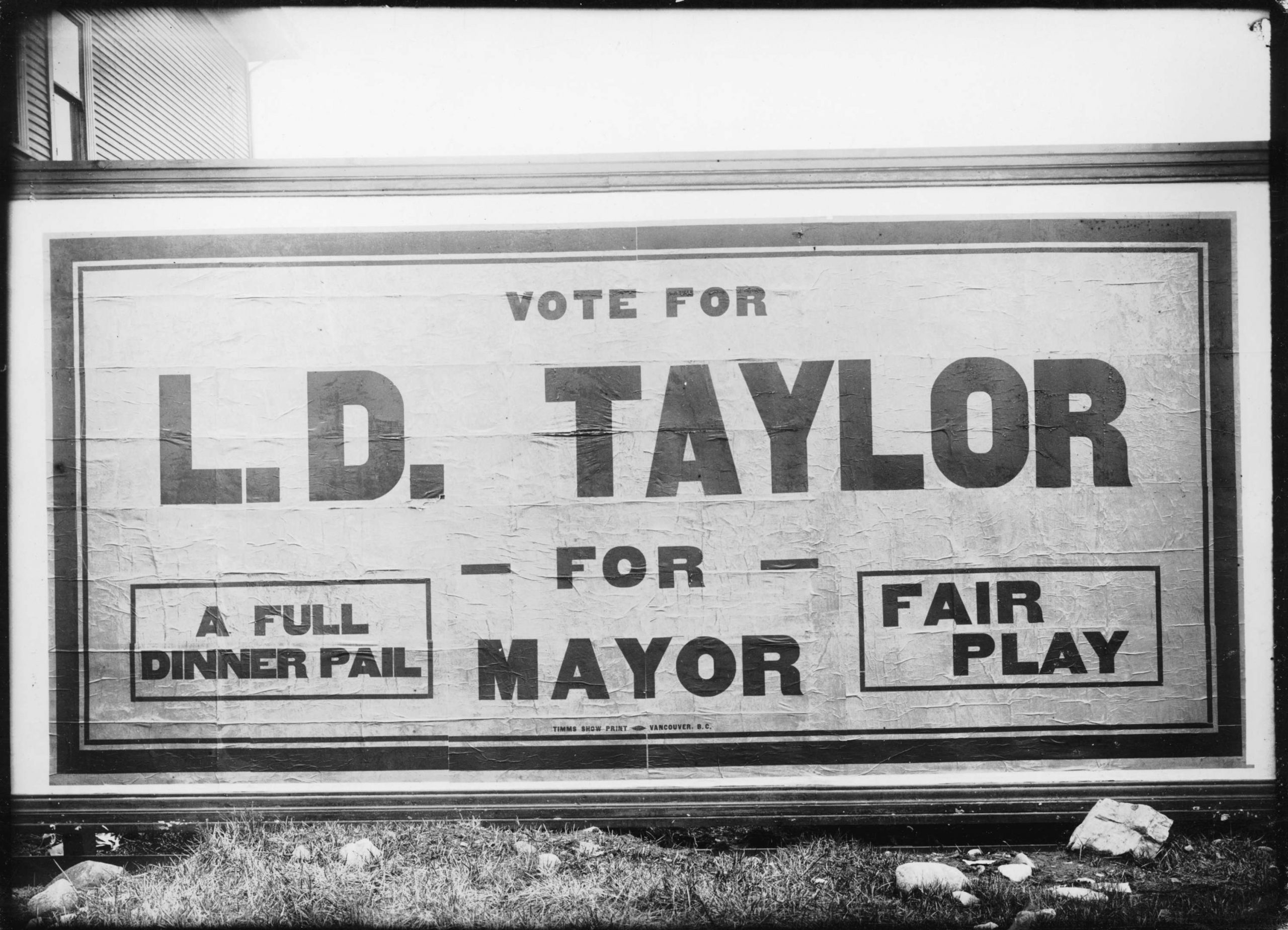Marie Lloyd
![Marie Lloyd
[Photo: www.peopleplayuk.org.uk]](https://vancouverhistory.ca/wp-content/uploads/2021/01/marie_lloyd.jpg)
[Photo: www.peopleplayuk.org.uk]
English music hall queen Marie Lloyd’s reputation for doing “blue” material was well established by the time she got to Vancouver. It got her into trouble here.
From Ivan Ackery’s book of reminiscences, Fifty Years on Theatre Row, he quotes an oldtimer, Teddy Jamieson, who recalled a visit to the (old) Orpheum Theatre in Vancouver by Marie Lloyd in early February, 1914.
“The [Vancouver] licence inspector cut out one of her two songs, The Ankle Watch,” Teddy explained. “It was mild as could be in comparison to today. During the song she lifted her dress and showed her ankle watch. They made her cut it out.
“I remember quite well her coming out on stage,” he continued. “She was a good trouper, a real pro.”
Born Matilda Wood
She was born Matilda Alice Victoria Wood in London, February 12, 1870. She first appeared as Marie Lloyd in June of 1885; Marie because she liked the name and Lloyd after Lloyd’s Weekly News. By 1891 she was a star and earning £100 a week with songs like My Soldier Laddy, The Boy I Love is Up in the Gallery (which became her biggest hit), and a song we’d love to see the words for: She’d Never Had Her Ticket Punched Before.
Her personal life was turbulent. In 1904 her first husband divorced her on the grounds of her adultery with Alex Hurley, an Australian comic. She married Hurley in 1908, but divorced him in 1911 and, at 41, began living with a 23-year-old jockey, Bernard Dillon. This was the early 1900s and behavior of this sort was the subject of scandalized front-page news.
In fact, Marie was excluded from the Royal Command Performance of 1912 because of her reputation.
Her lifestyle did her no harm at the box office. She was engaged to tour the US and Canada in 1913 at £150 a week. But when she arrived with Dillon in New York they were refused entry and detained on Ellis Island. An order for their deportation on the grounds of “moral turpitude” (depravity) was issued, but at the last moment the government ruled they could stay, as long as they paid bail and on condition they did not “cohabit.”
Vancouver

By the time she got to Vancouver, public curiosity was intense. Mayor T.S. Baxter sent licence inspector Charlie Jones around to look at the show, and what Jones had to tell him prompted the mayor to say that he “was of the opinion that two of Marie Lloyd’s songs might go all right in London, but Vancouver would not stand for them.”
The response of the theatre manager: “I should worry. As of Monday night every available seat in the Orpheum was sold.”
That proof of Marie’s undeniable popularity had no effect on Mayor Baxter. By Saturday he ordered her show closed. She went on despite this, and tried to explain matters to the audience, but broke down on the stage.
“Hearing the insistent calls of the audience,” a contemporary newspaper report said, “she again felt like responding, but someone in the wings, she states, held her back.”
The Smart Set
“Despite the mayor’s orders,” the Vancouver Sun reported, “there were those who wanted to see her, particularly members of Vancouver’s Smart Set. They prevailed upon her to participate in the cabaret matinee at the Hotel Vancouver, where she was loudly applauded.”
(Note: this is the first Hotel Vancouver, long vanished, that stood at Georgia and Granville.)
It seems Marie had been much aggrieved by an earlier Sun story. “She was really peeved,” the paper confessed. “She said that she did not have to stick in this d____d place, and could go back to London, which was more than residents in Vancouver could do because they had to stick here.
“The city editor just said Ha Ha. This roused her to greater fury. ‘Ha ha,’ she mocked, ‘if I had your reporter here I would knock him on his _______ nose’.”
Alas, she never got the chance: that reporter was off on a different assignment.
Wed again

Shortly after leaving Vancouver Marie and her jockey got married at the British consulate in Portland, Oregon.
During the First World War she toured hospitals and raised funds for various good causes. But in 1919, at another Royal Command Performance—this one held to celebrate the end of the war—she was again snubbed.
“Although her popularity never declined, and her top-of-the-bill status was never challenged,” music hall historian Roy Busby has written, “her later career was not happy . . . [Her] marriage was not a success.”
By now she was earning up to £600 a week singing the best character songs of her career. They included, Busby tells us, Don’t Dilly Dally; My Old Man Said Follow the Van and One of the Ruins that Cromwell Knocked About a Bit. By 1920 her health was broken, and she died October 7, 1922, aged just 52.
If she were alive today, Busby comments wryly, she could have ended her career by singing I Did It My Way.
There is a good, brief and illustrated biographical note here.


![Fountain Chapel Picnic, 1935 [Photo credit: Gibson Family]](https://vancouverhistory.ca/wp-content/uploads/2021/02/community-390x205.jpg)

